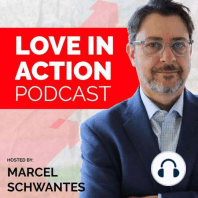34 min listen
Compassion Makes a Difference with Dr. Stephen Trzeciak
FromLove in Action
ratings:
Length:
45 minutes
Released:
Sep 24, 2020
Format:
Podcast episode
Description
Marcel Schwantes welcomes this week’s guest, Dr. Stephen Trzeciak, to the Love In Action Podcast. Dr. Trzeciak is Chief of Medicine at Cooper University Healthcare, and Professor and Chair of Medicine at Cooper Medical School. His research has been featured in prominent medical journals, including the Journal of the American Medical Association and the New England Journal of Medicine. He is the bestselling author of Compassionomics: The Revolutionary Scientific Evidence That Caring Makes a Difference. Dr. Trzeciak was granted the 2019 Influencers of Healthcare Award by the Philadelphia Inquirer.Stephen’s mission is to make healthcare more compassionate through science. [3:11]An unexpected question from his 12-year-old-son changed the trajectory of Stephen’s research. [7:33]“I ended up coming to the conclusion that the most pressing problem of our time is the lack of compassion,” Stephen says. “And I believe that transcends almost everything that we’re seeing in society today.” [9:58]Physicians miss 60-90% of opportunities to treat patients with compassion. [13:07]“We're testing the hypothesis that compassion isn't just a nice to have, that it's literally part of the therapeutic relationship itself,” Stephen says. [14:38]Marcel and Stephen discuss how compassion improves patient outcomes. Stephen points out that if you care about your patients, you’re more likely to be meticulous about the technical aspects of patient care. He shares how depersonalization, a major indicator of burnout, is associated with medical and surgical errors. [18:03]Marcel asks how compassion benefits the patient as well as the healthcare provider. [22:48]The three domains of burnout are depersonalization, emotional exhaustion, and feeling unable to make a difference. [23:15]There’s an inverse relationship between burnout and compassion, Stephen argues. People who have more compassion are more resistant to burnout. “The preponderance of evidence in the literature suggests that compassion can actually be protective; and perhaps compassion is actually an antidote to burnout…” [25:25]“40 seconds of compassion was all it took to make a measurable difference in the anxiety levels of patients who had gone through cancer,” Stephen says, “...a meaningful compassionate intervention takes less than 60 seconds.” [31:00]You can become more compassionate if you believe you can, and if you work at it. [35:00]Helping others helps you become more successful, Stephen argues. On the other hand, people who are only focused on themselves are more likely to be depressed, anxious, unfulfilled and unhappy. [37:50]Stephen comments, “The three most important things in success is people, people and people. So if you have the people that are going to be modeling behavior that gives other people elevation and that upliftment of witnessing moral excellence, that's just going to be a chain reaction.” [41:25]Stephen advises listeners to “Find the greatest need that you possibly can and then go fill that need in service to others. And the science shows that that is much more likely to give you your true fulfillment.” [43:21]ResourcesCompassionomics.com
Released:
Sep 24, 2020
Format:
Podcast episode
Titles in the series (100)
Building the Bonds of Trust with Joel Peterson by Love in Action
